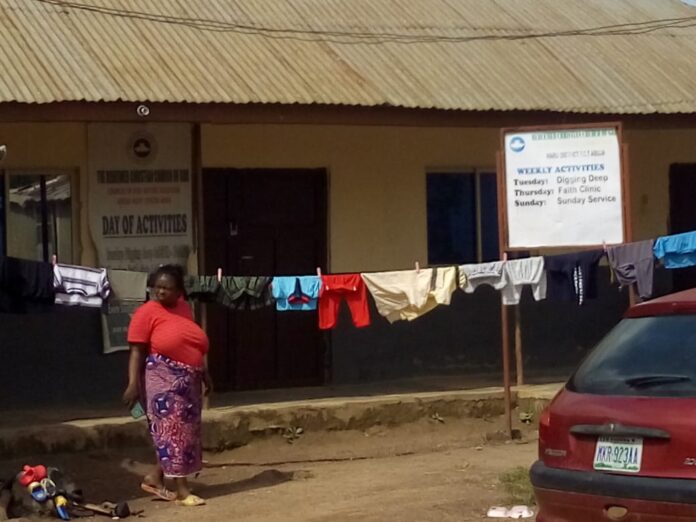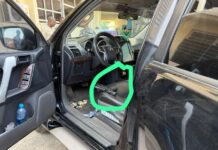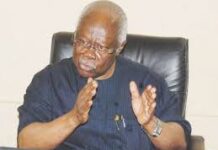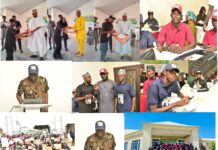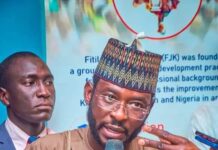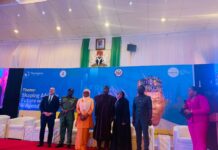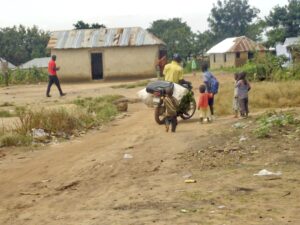
SPECIAL REPORT: How 5000 Borno IDPs Live in Dehumanising Conditions in Abuja Camp
By Lawan Bukar Maigana & Lawal Dahiru Manman
POLITICS DIGEST- Ever since the eruption of insurgency in Northeastern Nigeria more than a decade ago, Borno, Adamawa and Yobe states have been at the receiving end of the mayhem unleashed by the Boko Haram fighters.
A report released by United Nations revealed that about 350, 000 persons were killed and more than 2.2 million got displaced as a result of this insurgency.
Most of these internally displaced persons (IDPs) were dispersed across the country with some of taking shelter at the nation’s capital city, FCT Abuja living a life under condition which is nothing to write home about.
It is against this background that PRNigeria’s duo of Lawan Bukar Maigana and Lawal Dahiru Manman report on the living conditions of IDPs in Yimitu and Waru camps of FCT Abuja.
While narrating his experience to the reporters, one of the victims who happen to be the Deputy leader of Yimitu Camp, Ishaku John, lamented the lack of government’s attention towards their condition after being displaced from Gwoza Local Government Area of Borno State in 2014.
He revealed how he arrived Abuja in company of about 1300 IDPs comprising of women and children, thereby describing their living conditions as “sympathetic.”
“I am from the Kirawa community in Gwoza LGA. I used to be a businessman selling wrappers at the Central Market. I was not around when the terrorists went to my house to kill me, but killed my wife and burnt my shop thereby relegating me to a destitute.
“I operate a motorcycle—okada to feed my family. I can’t leave my mother and family here and go somewhere in search of money. My mother developed blood pressure when I left them for some days,” he lamented.
John also complained of insufficient food, clinics, and schools in the Yimitu community, saying: “we always think about where to get food for our families. There is no clinic to go to when our families fall sick and the future of our children has been jeopardised due to lack of schools in the community. Some of us don’t have 2000 to pay for school fees hence many of our children are at home.”
He further stated how FCT Emergency Management Agency (FEMA) used to sponsor no fewer than 250 children at Waru Primary School but have since stopped.
“We don’t know anything other than farming but the herdsmen and their cows have been troubling us. Even though we reported them to the local authorities, they continue to invade our farms and equally destroy our crop.” Mr. John stated.
Similarly, Elisha Ezekiel, the Head of Waru IDP camp also said that they came to Abuja in 2014 in a company of 4100 persons from Borno, Adamawa, and Yobe states due to as Boko Haram insurgency.
Ezekiel explained that lack of water and clinics have been their major challenges in the camp, noting that the National Emergency Management Agency (NEMA) assisted them with food items between 2014 and 2015.
Meanwhile, PRNigeria observed that the only existing borehole at Waru camp has stopped working for six months thus necessitating many of them to buy water from water vendors.
Read Also:
On their parts, Sera Danjuma, 16, and Briskila Albert, 24, who are IDPs from Borno developed the interest of becoming medical doctors so as to help their people after considering the health challenges in their camps.
Albert said that she could not further her education due to financial constraints and there is no one to help her, adding that she sells porridge to help herself while Danjuma is currently schooling at a Junior Secondary School at Waru under the care of her mother.
In his response to the issues raised by the IDPs, the FEMA Director-General, Mr. Abbas G. Idris said: “Before we go into the discussion, let me clear the air, there are no IDPs in the federal capital territory (FCT), those of them here are living in communities of their choice. During the unrest, we understood their plights and collaborated with International Organisation for Migration (IOM) to document them and begin interventions, at that time, there were over 26,000 of them across the FCT.
“Since the IOM relocated and moved all its activities to the Northeast because that is where IDPs are recognided by law, we have not updated the database to know the exact number still around.
On intervention, Mr. Idris denied the allegations made by the IDPs noting that the agency has been doing it’s best in distributing relief materials on several occasions.
“We provide several interventions in collaboration with different development partners like Japan International Cooperation Agency (JICA), Pathfinder, and Plant International, ranging from food to skills acquisitions training and corresponding empowerment afterward.
“Some of the skills they learn include, rice padding, soap making, air freshener making, and groundnut oil extraction among others.
“Interestingly, we also issue certificates at the end of each training, the only barrier is that, not all may be able to get all the logistics because of their large number and the resources are limited.” Mr Idris stated.
Mr. Idris told PRNigeria that Waru and Yimitu are among the most recent beneficiaries of these interventions.
On education, he said: “we have enrolled over 2,000 IDPs children in public schools across the FCT and provided them with uniform and learning materials.
“At a point, Jaiz Foundation and Refugees Commission came in with what they had in terms of books and mathematical sets which we distributed, and as far as I know, no one is asking them to pay a dime.
“With regards to water supply, I can tell you categorically that we have drilled several boreholes using Shell Company in Waru community, the wife of the then Honorable Minister of FCT drilled about 3 to cater for their domestic needs.
“In terms of healthcare, we made provision of 2 centers, Asokoro and Wuse and they would not have to pay a kobo to be attended to, but they have to present a referral form.”
In addition, Mr. Idris said: “Since a lot of them are farmers, in Yimitu, we provided land for cultivation and designated two areas to serve as a marketplace where they can sell their goods and cater for themselves and their families.
The Director lamented how at a point they were called to return home but a lot of them declined.
“Some years ago, the IDPs were asked to go back and settle in the houses provided by the government in their ancestral communities but they refused as only 200 agreed and went back.” Mr. Idris said.
Nonetheless, the Director emphasised that handling IDPs is multisectoral noting that they have always done their best and will continue to do so whenever resources are available.
By PRNigeria

